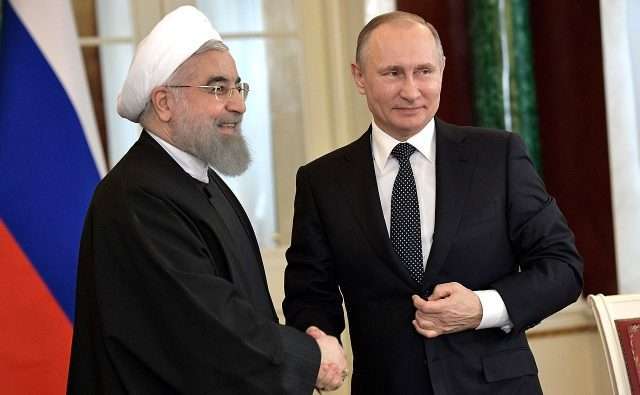
Persian Files ISSN 2975-0598 Volume 1 Issue 1
Author: Silvia Boltuc
Russia and Iran are strengthening their bilateral cooperation in the field of scientific research focusing their attention on the Caspian Sea since the region plays a strategic role in the international arena and energy market. Furthermore, Tehran is becoming more involved in Russian domestic markets, as demonstrated by the recent cooperation agreement between Iranian and North Caucasian academic institutions.
The Minister of Science, Research and Technology of the Islamic Republic of Iran, Mansour Gholami, recently stated that the current international political situation could not negatively affect the bilateral interaction and cooperation between Iran and Russia, especially in the field of science.
Gholami, in particular, said that scientific cooperation between Iran and Russia is of great importance for sustainable development and increasing the number of scientific works and knowledge in the country and the region as a whole. In modern conditions, bilateral cooperation can be expanded by deepening contacts between researchers, professors and officials of the two countries.
It should be noted that one of the leading areas of Russian-Iranian scientific cooperation is the Caspian sea. Seyed Ziaeddin Mirhosseini, Vice-rector of the Guilan University of Iran, delivered a report on its prospects during the international scientific forum “Caspian of the XXI century: ways of sustainable development” on February 19th, 2020.
Speaking at the conference, Seyed Ziaeddin Mirhosseini proposed several areas of cooperation in this area, including improving joint educational and research activities of the Caspian countries, exchange of scientific information related to the Caspian Sea in the field of science and technology, which can be carried out in the form of publications in scientific journals, exchange of teachers and students in the field of education and research, joint seminars and training on the Caspian, the creation of new areas related to the Caspian Sea in Iranian – Russian universities, and the creation of joint databases on the Caspian Sea in the field of ecology, bioresources and ecosystems, water quality and climate change.
Moreover, it should be noted that Iran has increased its presence in the North Caucasus Federal District (NCFD), a region located in the South of Russia often considered the most troublesome, unsafe, economically problematic and affected by radicalisation and terrorism. Since the Nuclear Deal Agreement, Iran has boosted its relations with the North Caucasian republics, especially with North Ossetia-Alania, which hosted a conference where representatives of the local university signed a cooperation agreement with the Allameh Tabataba’i University of Tehran.
Iran-Russia Relations: A Geopolitical Assessment
The scientific cooperation between Russian and Iranian academic institutions and universities has been one of the main issues of Moscow – Tehran bilateral relations in the last years, with special emphasis on investigations and projects related to the Caspian Sea, the Middle East, and the Caucasus. In this crisis period due to Covid-19, Russia and Iran are confirming their common interests in foreign policy even though the two countries have different geopolitical goals.
Moscow and Tehran can be considered frenemies: in foreign, the Kremlin is interested in making a strong ally with the Islamic Republic of Iran against the US presence in the Middle East, while in domestic policy, the Russian government aims to attract Iranian investments in the North Caucasus to support socio-economic strategy. For Tehran, the Russian Federation is a vital ally in its Middle Eastern foreign policy, particularly in Syria, where both the countries have supported Bashar al-Assad and an interesting market where Iranian companies can invest and diversify their exportation.
Do you like SpecialEurasia reports and analyses? Has our groundbreaking research empowered you or your team? Now is your chance to be a part of our mission! Join us in advancing independent reporting and unlocking the secrets of Eurasia’s complex geopolitical landscape. Whether through a one-time contribution or a monthly/yearly donation, your support will fuel our relentless pursuit of knowledge and understanding. Together, let’s pave the way for a brighter future. DONATE NOW and secure your place in shaping the geopolitical narrative.



